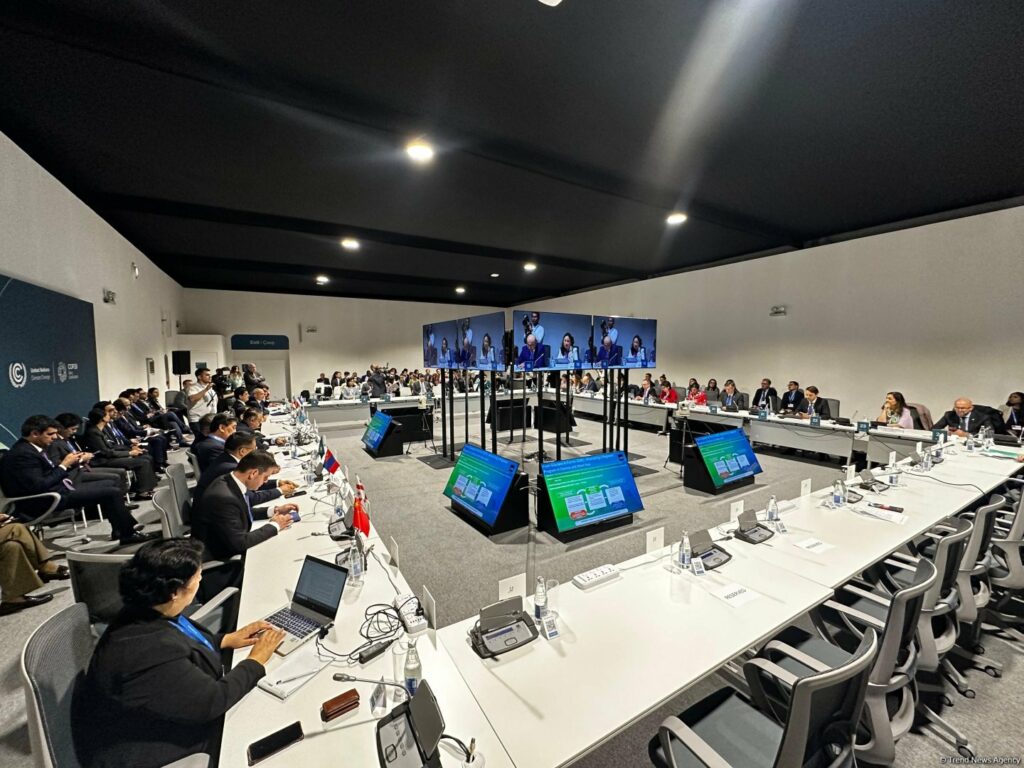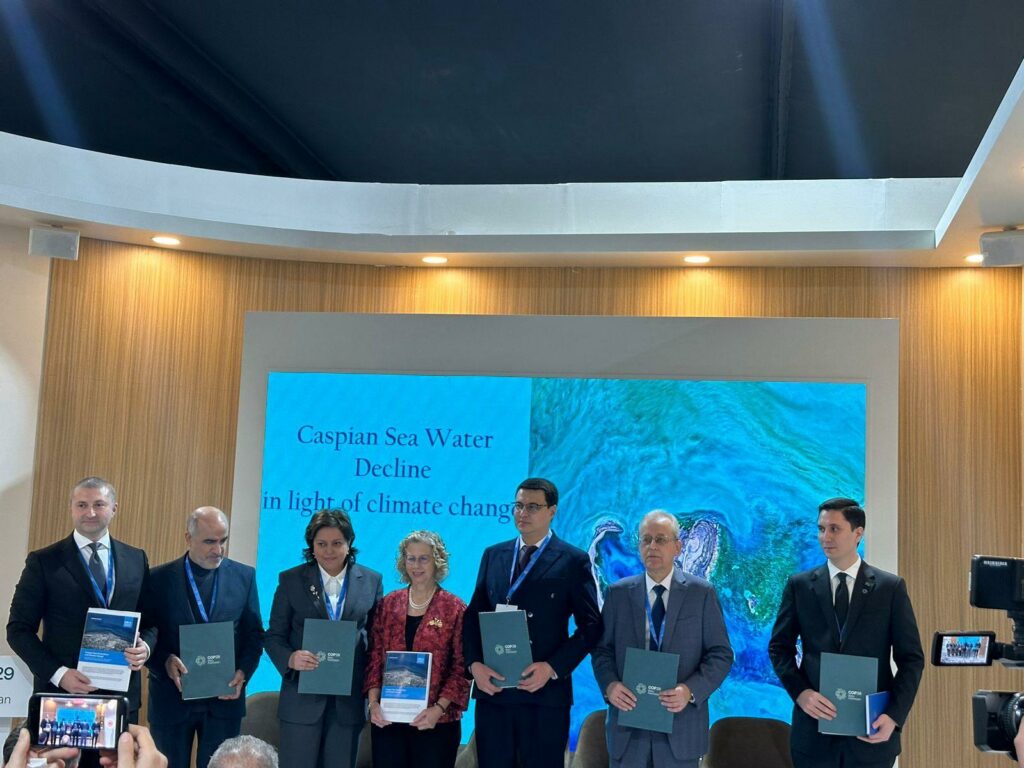At COP-29 they discussed how to save the Caspian Sea

The Caspian Sea is at the epicenter of a triple planetary crisis: climate change, biodiversity loss and pollution, Inger Andersen, Executive Director of the United Nations Environment Programme (UNEP), said Monday at the UN Climate Change Conference (COP-29) in Baku during an event dedicated to the problems of the largest closed body of water on Earth.
Andersen stressed that if the situation does not change, the water level in the Caspian Sea could fall by 18 meters by the end of the century. According to her, this is not just an environmental disaster – it is a socio-economic crisis that could lead to the forced displacement of five million people by 2050. Already, we are seeing a decline in fish stocks, soil salinization threatening agriculture, and the gradual disappearance of some species, such as the Caspian seal.
Joint efforts
Andersen reminded that despite the alarming situation, the Caspian Sea has a chance to be saved, and this will be a unique opportunity for international cooperation. Thus, the Caspian is a common resource that links the economies and communities of the coastal countries, and its protection requires coordination at the level of the entire region.
Read also:
UN: Climate change adaptation funding needs to be increased manifold
The head of UNEP praised the Tehran Convention, a fundamental agreement for environmental protection in the region, which provides the necessary tools for joint action. UNEP serves as the interim Secretariat of the Tehran Convention and will support all efforts to save the Caspian Sea by providing technical expertise and promoting innovative financial solutions, Andersen noted.
Three key priorities
She identified three priorities for protecting the Caspian Sea. First, a scientific approach is needed to help make informed decisions. Monitoring and forecasting will allow better management of water level changes, adaptation to climate change, protection of biodiversity and combating pollution, Andersen believes.
Secondly, she stressed that solutions must be transboundary. Only by joint efforts will the countries of the region be able to develop comprehensive measures aimed at preserving ecosystems and economic development.
Finally, the UNEP chief noted the need for urgent and decisive action. Andersen noted the urgency of the problem, calling the Caspian “a reflection of the global climate crisis.” She called on COP29 leaders to demonstrate commitment to protecting the sea’s ecosystem.
https://news.un.org/ru/story/2024/11/1458476



